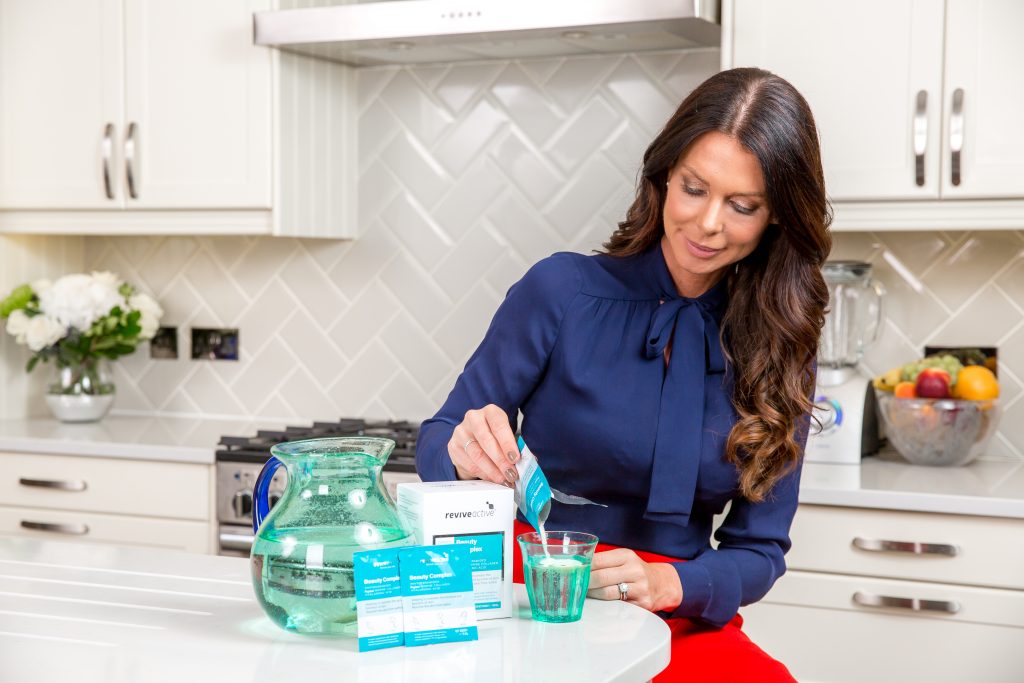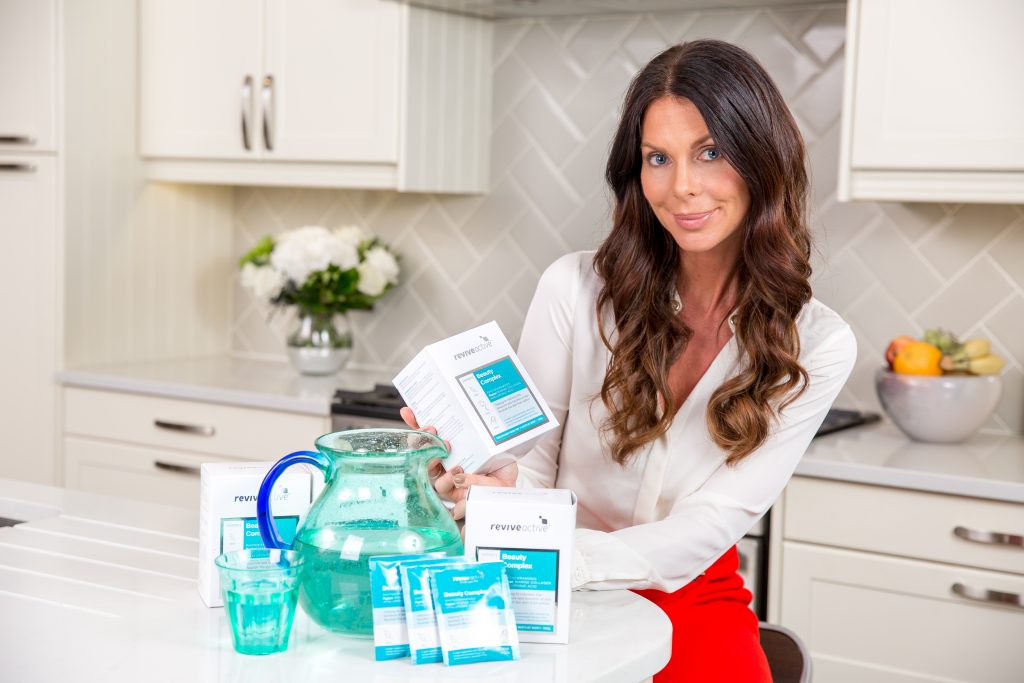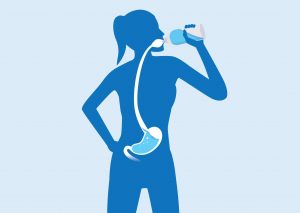There are many collagen supplements on the market, tablets, drinks, powders…. but how do we know if they actually work?
In order for collagen in a supplement form to be active in the deeper dermal layers of the skin, the collagen has to survive the acid digestion in our stomach and then cross the intestinal barrier in our gastrointestinal tract, before it can reach the bloodstream. The efficacy of many nutritional supplements is often diminished due to being broken down too rapidly in the stomach or due to the slow rate of transport when they pass out of the stomach and try to pass across this intestinal barrier in our bowel wall.
When a collagen supplement is in hydrolysed powder form, rather than a tablet form, the collagen is already partially broken down into peptides, the ‘building blocks’ we need to make new collagen and elastin. The collagen in Beauty Complex is therefore stable and absorbed rapidly into the bloodstream, bypassing many of these digestive steps.
 Absorption studies confirm that within 6 hours of reaching the blood stream, 95% of the collagen has left the blood stream and can be found in the dermis, the layer of the skin where peptides are actually needed and where they can get to work to stimulate remodelling.
Absorption studies confirm that within 6 hours of reaching the blood stream, 95% of the collagen has left the blood stream and can be found in the dermis, the layer of the skin where peptides are actually needed and where they can get to work to stimulate remodelling.
‘Bioactive’ is the biological action of a substance. When we look at the efficacy of a supplement, we are also interested in the ‘bioavailability’, which is the amount of a bioactive compound that crosses the intestinal barrier to reach the bloodstream and is made available for either storage in the body, in this case in the skin.
A ‘fresh’ dose of collagen refers to the fact that the Beauty Complex powder supplement is made up as a new dose each day, by blending your sachet contents with your favourite smoothie or simply with water. The collagen remains stable in liquid for for approximately 30 minutes, which is why pre-formulated liquid collagen is unlikely to be bioactive.

The first step in getting the collagen nutrients in a supplement ‘skin ready’ results in the process of degradation or break down of the hydrolysed collagen to form ‘mini-building blocks’ also known as dipeptides and tripeptides or free amino acids. Several proteases (enzymes that help to break the peptides down into small building blocks for the skin) are involved in this process.
Once we create these free amino acids, these can then pass through the epithelial cells in the intestinal tract.
 The next important factor in the efficacy of a supplement is the ‘distribution’. How much of the supplement actually reaches the area in the body we need it to?
The next important factor in the efficacy of a supplement is the ‘distribution’. How much of the supplement actually reaches the area in the body we need it to?
Factors that can affect the rate of distribution are blood flow and the chemical features of a given compound, such as molecular size and polarity.

Radioisotope studies confirm that 95% of the Type 1 marine collagen in Beauty Complex is ‘distributed’ into the dermis, and it remains there for up to 14 days.
These collagen specific Peptides have been proven to have significant skin benefits. In particular, they have been shown in clinical studies to stimulate cell proliferation and collagen production. As we lose 1-1.5% of our Type 1 collagen per year from the age of 20, it makes sense that we provide our skin with the nutrients it needs to continue to build fresh, healthy and stretchy collagen fibres. Not only will this keep skin looking smoother and less lined, it will also enhance the integrity of the epidermal barrier (the top layer) in the skin, which is essential for optimal skin health.
I have carefully chosen Beauty Complex to recommend to my patients alongside their in-clinic treatments as it consists of Type 1 Marine collagen in hydrolysed form, phytoceramides, hyaluronic acid and collagen-boosting vitamins and mineral co-factors. This nutritional supplement has been designed to enhance the skin’s health and to help to counteract the signs of skin ageing. For more information, contact the clinic on enquiries@nuriss.co.uk or visit our website https://nuriss.co.uk/product/revive-active/




